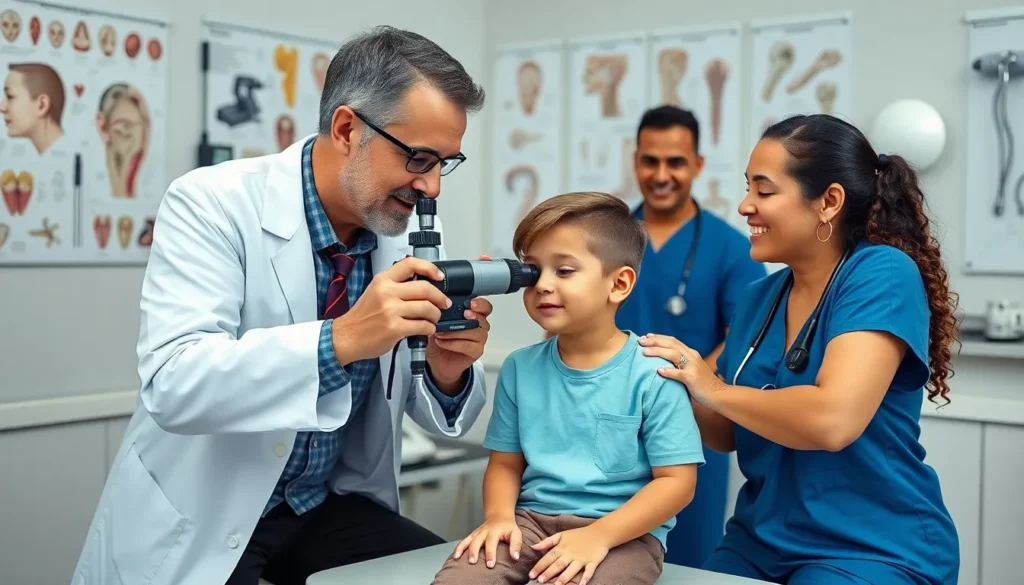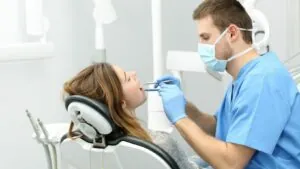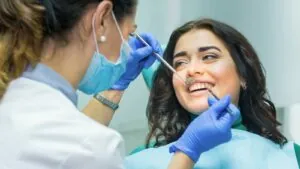When it comes to ear, nose, and throat health, few specialists are as essential as the onitorrincologista. This might sound like a character from a sci-fi movie, but it’s actually a vital ally in the battle against those pesky ailments that can disrupt daily life. From chronic sinus infections to earaches that make you feel like you’re underwater, this expert knows how to tackle it all.
Table of Contents
ToggleOverview of Onitorrincologista
Onitorrincologista focuses on disorders related to the ear, nose, and throat (ENT). This specialist diagnoses and treats ailments that affect these areas, providing crucial care for patients experiencing issues like chronic sinusitis, allergies, and hearing loss. Conditions such as sleep apnea and swallowing disorders often fall under their expertise.
Regular consultations with an onitorrincologista play a significant role in maintaining overall health. Many patients benefit from preventive measures and early interventions that these specialists offer. Routine assessments can identify potential problems before they escalate, ensuring timely treatment.
Treatment options provided by onitorrincologistas include medical management, surgical strategies, and lifestyle advice. For example, they may recommend medication for allergies or surgery for adenoid removal in children. Collaborative care with general practitioners enhances the overall health outcomes for patients, ensuring a comprehensive approach to ENT health.
Additionally, onitorrincologistas use advanced diagnostic tools to evaluate conditions effectively. Techniques like endoscopy and imaging studies allow for precise assessments, leading to tailored treatment plans. They also educate patients about the importance of ear, nose, and throat health, encouraging proactive measures and awareness.
Training in this field requires extensive education, including medical school and residency programs focused on ENT. After completing their training, they possess the skills to handle various cases, from minor infections to complex surgical procedures.
The onitorrincologista serves as an essential component of the healthcare system, addressing critical aspects of well-being. Their specialized expertise aids in enhancing patients’ quality of life, making their role indispensable in both preventative and reactive healthcare scenarios.
Importance of Onitorrincologista in Healthcare

Onitorrincologistas significantly contribute to healthcare by focusing on the diagnosis and treatment of ear, nose, and throat conditions. These specialists play a vital role in managing various health issues that can substantially impact quality of life.
Role in Diagnosis
Diagnosis is a key responsibility of the onitorrincologista. They use advanced diagnostic tools, including endoscopy and imaging studies, to assess conditions accurately. Every patient receives a thorough evaluation to identify specific ailments. Their expertise enables them to diagnose chronic sinusitis, allergies, hearing loss, and sleep apnea effectively. Regular assessments can catch potential problems early, ensuring timely treatment. Through proper diagnosis, onitorrincologistas help prevent complications, leading to better overall health outcomes for patients.
Role in Treatment
The treatment provided by onitorrincologistas addresses a variety of ENT disorders. Options range from medical management to surgical procedures tailored to each individual’s needs. Specialists often collaborate with general practitioners to enhance care, ensuring a comprehensive approach. Lifestyle recommendations also play a crucial part in treatment plans, encouraging healthier habits. In many cases, they educate patients about managing chronic conditions effectively. Each strategy aims to alleviate symptoms and improve the quality of life for individuals experiencing ENT issues.
Common Conditions Treated by Onitorrincologista
Onitorrincologistas address various ear, nose, and throat conditions. They possess the expertise to diagnose and treat numerous ailments effectively.
Sinusitis
Sinusitis involves inflammation of the sinus cavities, leading to discomfort and difficulty breathing. Symptoms may include nasal congestion, facial pain, and mucus discharge. Chronic sinusitis affects many individuals, causing prolonged symptoms that impact daily activities. Treatment typically combines medication, such as decongestants and antibiotics, with potential surgical interventions for severe cases. Patients benefit from regular follow-ups to manage underlying causes and prevent recurrences.
Allergies
Allergies manifest through various symptoms such as sneezing, itching, and nasal congestion. Common triggers include pollen, dust mites, and pet dander. Onitorrincologistas conduct allergy tests to identify specific allergens affecting patients. Treatment strategies range from antihistamines to immunotherapy, focusing on relieving symptoms and improving quality of life. Patients learn effective avoidance techniques, contributing to better overall health management.
Sleep Apnea
Sleep apnea disrupts normal breathing during sleep, leading to daytime fatigue and various health risks. Symptoms include loud snoring and episodes of breath cessation at night. Onitorrincologistas utilize sleep studies to diagnose the condition accurately, tailoring treatment plans accordingly. Options include continuous positive airway pressure (CPAP) devices and lifestyle modifications. Patients receive valuable guidance on weight management and sleep hygiene to enhance treatment effectiveness.
Choosing the Right Onitorrincologista
Selecting an onitorrincologista requires careful consideration of various factors. Look for credentials first. Board certification indicates that the specialist has met specific training requirements in ear, nose, and throat health.
Evaluate experience next. Specialists with years of practice often possess valuable insights into managing complex conditions. Ask about their familiarity with your specific issues, such as sinusitis or sleep apnea.
Consider patient reviews as well. Testimonials provide insight into the experiences of others, helping gauge the quality of care offered. High ratings usually reflect strong communication skills and successful outcomes.
Inquire about diagnostic tools used by the onitorrincologista. Access to advanced technology, like endoscopy and imaging studies, suggests a thorough approach to assessment. This capability can lead to early detection of potential problems.
Examine treatment options too. A diverse range of strategies, including medical management and surgical interventions, indicates the specialist’s flexibility in care. Collaborative care with other healthcare professionals, such as general practitioners, enhances overall patient outcomes.
Assess the practice environment. A welcoming atmosphere and attentive staff contribute to a positive experience. Comfort during visits encourages open conversations about health concerns, bolstering the doctor-patient relationship.
Check if the specialist focuses on education. Practitioners who take time to explain conditions and treatment plans empower patients in their care. This knowledge fosters better management of chronic issues like allergies and hearing loss.
Prioritize compatibility as well. Patients should feel comfortable addressing their concerns, ensuring effective communication with the onitorrincologista. Finding a personable specialist can significantly impact treatment success and overall satisfaction.
The role of an onitorrincologista is vital in maintaining ear, nose, and throat health. Their expertise not only addresses common ailments but also enhances overall well-being through preventive care and early intervention. By utilizing advanced diagnostic tools and offering a range of treatment options, these specialists ensure that patients receive comprehensive care tailored to their needs.
Choosing the right onitorrincologista can significantly impact treatment outcomes. Patients should consider factors like board certification, experience, and patient reviews to find a specialist who aligns with their health goals. Ultimately, the commitment of onitorrincologistas to patient education and collaborative care fosters a healthier community and improves quality of life for many.





